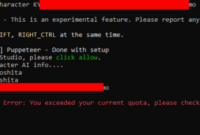Stock market analysis tools provide essential insights for investors looking to make informed decisions in the dynamic world of trading. From fundamental to technical analysis, these tools offer a comprehensive view of market trends and opportunities. Let’s dive into the realm of stock market analysis tools and discover how they can help you optimize your investment strategy.
Types of Stock Market Analysis Tools

Stock market analysis tools are essential for investors and traders to make informed decisions. These tools can be broadly categorized into fundamental analysis, technical analysis, quantitative analysis, and qualitative analysis.
When it comes to investing in stocks, diversification is key. How to diversify your stock portfolio is a crucial aspect of risk management. By spreading your investments across different sectors and industries, you can reduce the impact of volatility on your portfolio.
Fundamental Analysis Tools
Fundamental analysis tools focus on evaluating the intrinsic value of a stock based on economic and financial factors. Some common fundamental analysis tools include:
- Financial statements analysis
- Ratio analysis
- Earnings per share (EPS)
- Price-to-earnings (P/E) ratio
Technical Analysis Tools
Technical analysis tools involve studying historical price and volume data to forecast future price movements. Different types of technical analysis tools include:
- Chart patterns
- Technical indicators (e.g., moving averages, Relative Strength Index)
- Candlestick patterns
- Volume analysis
Quantitative Analysis Tools vs. Qualitative Analysis Tools, Stock market analysis tools
Quantitative analysis tools rely on mathematical and statistical models to analyze stock data objectively. On the other hand, qualitative analysis tools involve assessing non-numeric information like management quality and industry trends. Let’s compare and contrast these two types:
| Quantitative Analysis Tools | Qualitative Analysis Tools |
|---|---|
| Objective and data-driven | Subjective and based on judgment |
| Focus on numbers and metrics | Focus on qualitative factors |
| Utilizes statistical models | Relies on qualitative assessments |
Popular Stock Market Analysis Software: Stock Market Analysis Tools

When it comes to analyzing the stock market, there are several software tools that have gained popularity among traders and investors. These platforms offer a wide range of features and functionalities to help users make informed decisions about their investments.
1. Bloomberg Terminal
The Bloomberg Terminal is one of the most widely used stock market analysis software in the financial industry. It provides real-time data, news, and analytics on financial markets, making it a valuable tool for traders and analysts. With features like advanced charting tools, economic indicators, and trading capabilities, Bloomberg Terminal simplifies the process of analyzing market trends and making investment decisions.
2. MetaStock
MetaStock is another popular stock market analysis software that offers powerful technical analysis tools to help traders identify potential trading opportunities. The platform provides customizable charts, screening tools, and backtesting capabilities, allowing users to analyze historical data and test trading strategies. MetaStock is known for its user-friendly interface and comprehensive market analysis features.
3. TradeStation
TradeStation is a leading stock market analysis platform that caters to both beginner and experienced traders. The software offers advanced charting tools, scanning capabilities, and trading automation features to help users analyze market trends and execute trades efficiently. TradeStation also provides access to a wide range of technical indicators and trading strategies to assist traders in making well-informed decisions.
4. Thinkorswim
Thinkorswim, developed by TD Ameritrade, is a popular stock market analysis software known for its comprehensive set of tools and resources. The platform offers advanced charting tools, technical analysis features, and customizable watchlists to help traders monitor market movements and identify potential opportunities. Thinkorswim also provides access to live streaming data and educational resources to support traders in their decision-making process.
Real-time Data and Market Analysis
Real-time data plays a crucial role in stock market analysis as it provides up-to-the-minute information on market conditions, stock prices, trading volumes, and other relevant data points. This real-time information allows traders and investors to make informed decisions quickly, react to market changes promptly, and take advantage of trading opportunities as they arise.
Importance of Real-time Data
- Real-time data helps traders and investors stay ahead of market trends and make timely decisions to capitalize on profit opportunities.
- It provides accurate and current information on stock prices, trading volumes, news, and events that can impact stock prices.
- Real-time data enables traders to monitor their investments closely and adjust their strategies in response to market movements.
Impact on Decision-making
- Real-time market analysis tools empower traders and investors to make quick decisions based on the most recent market data.
- By accessing real-time data, traders can react swiftly to market changes, reducing the risk of missed opportunities or losses.
- These tools help in identifying trading patterns, trends, and signals that can inform investment decisions and optimize trading strategies.
Benefits and Challenges
- Benefits:
- Enhanced decision-making process with access to immediate and relevant information.
- Ability to capitalize on short-term trading opportunities and market fluctuations.
- Improved risk management through real-time monitoring of investments.
- Challenges:
- Information overload can lead to analysis paralysis or making impulsive decisions.
- Cost associated with accessing real-time data and market analysis tools.
- Potential for inaccuracies in real-time data feeds, leading to erroneous decision-making.
Technical Indicators in Stock Market Analysis
When it comes to stock market analysis, technical indicators play a crucial role in helping investors make informed decisions. These indicators are mathematical calculations based on historical price, volume, or open interest data. They are used to analyze market trends, identify potential entry or exit points, and predict future price movements.
Key Technical Indicators
- Simple Moving Average (SMA): SMA is a widely used indicator that smoothens out price data by creating a constantly updated average price. It helps in determining the trend direction.
- Relative Strength Index (RSI): RSI measures the speed and change of price movements. It is used to identify overbought or oversold conditions in a stock.
- Bollinger Bands: Bollinger Bands consist of a middle band (SMA) and two outer bands that are standard deviations away from the SMA. They help in identifying volatility and potential reversal points.
- MACD (Moving Average Convergence Divergence): MACD is a trend-following momentum indicator that shows the relationship between two moving averages of a security’s price. It helps in identifying trend changes.
Stock Screening Tools

Stock screening tools are essential for investors looking to analyze and filter through a large number of stocks to identify potential investment opportunities. These tools help investors narrow down their choices based on specific criteria such as market capitalization, price-to-earnings ratio, dividend yield, and other fundamental and technical indicators.
Comparison of Stock Screening Tools
- Yahoo Finance: Yahoo Finance offers a free stock screener that allows users to filter stocks based on various criteria such as market cap, industry, and financial ratios.
- Finviz: Finviz is a popular stock screening tool that provides users with a wide range of filters and customization options to identify stocks that meet their specific criteria.
- Stock Rover: Stock Rover is a comprehensive stock analysis tool that offers advanced screening capabilities, portfolio tracking, and research reports.
Using Stock Screening Tools for Investment Opportunities
Stock screening tools enable investors to set specific parameters to screen stocks based on their investment preferences. By using these tools, investors can quickly identify potential opportunities that match their investment criteria, saving time and effort in the research process. Investors can analyze the filtered results further to make informed investment decisions and build a well-diversified portfolio.
In conclusion, Stock market analysis tools play a crucial role in empowering investors with the information they need to navigate the complexities of the stock market. By leveraging the right tools and software, you can enhance your decision-making process and maximize your investment potential. Stay informed, stay ahead, and watch your investments grow.
Before jumping into the stock market, it’s important to know how to research stocks effectively. Understanding financial statements, analyzing company performance, and keeping up with market trends are essential for making informed investment decisions.
Developing effective stock picking strategies is crucial for success in the market. Whether you follow a value investing approach, technical analysis, or a combination of strategies, having a clear plan can help you navigate the complexities of stock selection.




